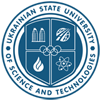Publication Ethics
Relationships between authors, editors and reviewers in our journal are based on academic benevolence, objectivity of ratings and priority of scientific quality. We are following the principles of Code of Conduct for Editors as defined by the Committee of Publication Ethics (COPE), in particular
FAIR PLAY
Manuscripts shall be evaluated for their scientific quality, regardless of author’s race, ethnicity, gender, sexual orientation, religion, nationality or political opinions.
ELIMINATION OF THE PLAGIARISM, LIBEL AND COPYRIGHT INFRINGEMENT
Our journal rejects any material that breaks legal requirements regarding plagiarism, libel and copyright infringement. If the text of the article contains data borrowed from other literary sources, then these fragments should be marked with bibliographic references. All submitted manuscripts are checked by online plagiarism search service "Turnitin".
COPYRIGHT AND LICENSING
This journal provides open access to all of its content (see Copyright and Licensing). As such, copyright for articles published in this journal is retained by the authors, under the terms of the Creative Commons Attribution 4.0 International License (CC BY 4.0).
EDITORS RESPONSIBILITIES
The editor-in-chief shall be guided by the policies of the journal's editorial board and consults with other editors or reviewers about the decision to publish.
EDITORS
- have full authority to reject / accept the article, guided by objective scientific criteria and findings reviewers;
- ensure the quality of the material they publish;
- must disclose any conflicts of interest;
- keep information pertaining to submitted manuscripts confidential;
- champion freedom of scientific expression;
If editors suspect the authenticity, originality or ethical correctness of an article, publication of the last is delayed until any doubt is clarified. Unpublished materials from submitted manuscript must not be used in an Editor’s own research without the express written consent of the author.
AUTHOR RESPONSIBILITIES
Authors must
- ensure that they have written truly original works;
- have significant contribution to the research (if a paper has several authors);
- guarantee obtained permission for use of copyrighted materials;
- certify that the manuscript has not previously been published elsewhere and is not currently being considered for publication elsewhere;
- identify all sources used in the creation of their manuscript;
- provide their raw data for some verification process by ask of the editorial board or reviewers;
- disclose in their manuscript any substantive conflict of interest that might be construed to influence the assessment of their manuscript.
All sources should be properly reviewed, cited and acknowledged. Authors must inform all respondents that their answers maybe quoted in the manuscript. All conversations and correspondences must require permission from the party involved before citing them in the manuscript. This is a way to avoid possible plagiarism.
In case of disagreement with the reviewer opinion, the author of manuscript has the right to provide reasons response to journal editors. In this case, the article is reviewed at the session of editorial board working group. The Editorial Board sends the article for additional or new review by another specialist.
Information obtained by authors privately, as in conversation, correspondence, or discussion with third parties, must not be used or reported without explicit, written, permission from the source. By submitting an article to the editorial board, the authors agree that their text will be automatically published in the online-journal under open access.
REVIEWER RESPONSIBILITIES
Reviewer must:
- notify Editorial staff of any conflicts of interest that may determine their findings;
- keep information pertaining to the manuscript confidential;
- be objective and constructive in their reviews.
Unpublished materials from submitted manuscript must not be used in reviewers' own research without the express written consent of the author.
Reviewers have enough time (up to 6 weeks) to review the articles. It is their responsibility to notify the editorial board if they can’t make a review prior to the specified deadline. (See For Reviewers).
AI USE POLICY
The editorial board of the journal University Library at a New Stage of Social Communications Development. Conference Proceedings adheres to COPE's Guidelines on Artificial Intelligence (AI) and Authorship.
Our policy is that AI software cannot be listed as an author in an article. It should only be considered as a tool for finding relevant scientific sources, improving the quality of texts by correcting various errors (grammatical, punctuation, spelling, stylistic), etc.
Additional information on COPE's recommendations on artificial intelligence and authorship can be found at the link.
The journal's policy on the use of artificial intelligence and automated tools:
1) manuscripts written entirely with the help of AI will be rejected. Only authors can guarantee that the work has original text and does not violate the rights of third parties;
2) Artificial intelligence tools cannot be listed as authors of the article.
3) Authors are required to indicate at which stages of the creation and preparation of their manuscripts AI tools were used.
Reviewers may use AI when reviewing manuscripts or preparing comments for authors only as an auxiliary tool. Reviewers should be aware that transferring the content of a manuscript to unpatented artificial intelligence is a breach of confidentiality.
The editorial board of the journal University Library at a New Stage of Social Communications Development. Conference Proceedings will monitor the development of AI technologies and keep track of the ethical implications of their use.
Additional information about COPE's recommendations on artificial intelligence and automation tools can be found at the link.
APPEALS AND COMPLAINTS
The editor-in-chief, together with the editorial board, considers the arguments of the authors and makes a decision. The complainant is informed of the decision with an explanation if appropriate.
CORRECTIONS & RETRACTIONS
The journal will issue corrections, retraction statements and other post-publication updates including Editor’s Notes and Editorial Expressions of Concern on published content.


